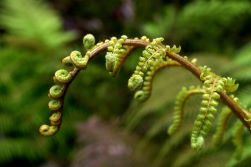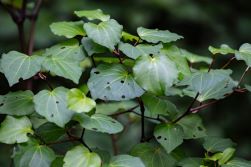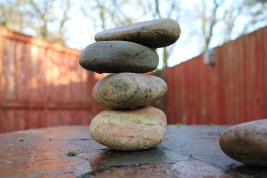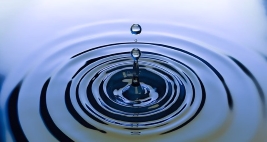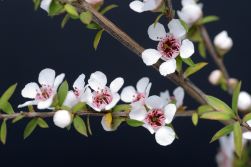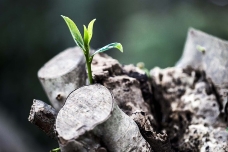This page is an archive of items previously posted in Te Whare Māori hei manaaki i ngā whānau i te wā o te mate urutā COVID-19
Pou Kōrero
Ngā kohinga kōrero me ngā uiui hei tautoko i ngā whānau
Conversations, interviews & commentaries to support whānau
Mauri Tū, Mauri Ora: Michael Naera speaks with Adrian Te Patu and Kiritahi Firmin about Māori Public Health, reflecting on how Māori communities have responded to COVID-19. Whānau wellbeing is shaped by the many different activities we are involved in to keep whānau connected and grounded. Much of our survival as a people has been learnt from our tūpuna, by way of tikanga, te reo, maara kai, whakawhanaungatanga and embracing technology. Tune in to hear these three Māori health practitioners share their kōrero.
When it was 100 days since the last case of COVID-19 was transmitted via an unknown source, Dr Ashley Bloomfield cautioned New Zealanders to remain vigilant and suggested whānau make sure they have face masks. The Ministry of Health explains how face masks will help in the ongoing fight against COVID-19. In Pou Manaaki you can learn how to make your own.
COVID-19 has made us rethink and recreate traditional ways of being together, none more so than our recent Koroneihana in which the internet allowed those kept apart by COVID-19 to come together and celebrate the Kīngitanga and Kīngi Tūheitia. View Part 1 and Part 2.
Supporting Te Kuku o te Manawa, the Office of the Children's Commissioner report which highlighted the deep systemic issues facing the statutory care and protection system, is the release of the report into Oranga Tamariki by the Ombudsman, He Take Kōhukihuki: A Matter of Urgency. Chief Ombudsman Peter Boshier spoke with Te Ao Māori News about his report on 74 babies who were uplifted by Oranga Tamariki at birth. Māori Television programme Marae followed up on this important Kaupapa.
In a media release celebrating the International Day of Indigenous Peoples, Aotearoa’s Race Relations Commissioner Meng Foon recognised the resilience of Māori in their response to COVID-19. Te Ao Māori News has this story.
Ever wanted to better understand Matariki? Hear a Māori astronomer and tōhunga explain. Marae presents a conversation between Scottie Morrison and Dr Rangi Matamua about Matariki.
Singer Maisey Rika shares the inspiration behind her new album, Ngā Mata o te Ariki Tāwhirimātea, on Te Ao Māori News. The album speaks to Matariki and social issues impacting Māori. What started as one song evolved to nine during lockdown.
Matariki is a time of reflection and of identifying what we take forward into the future and what we leave in the past. Aligning with this period of reflection was a July update to the COVID-19 Māori response action plan. Informing the update is feedback received since the release of the initial plan. Māori health COVID-19 activity will be supported by Whakamaua: Māori Health Action Plan 2020–2025. Whakamaua gives practical effect to He Korowai Oranga: Māori Health Strategy and its overarching vision of Pae Ora – healthy futures for Māori.
The rise of our Māori nurses: This is a look back at the "Black Flu" and now forward to the challenges of our Māori nurses and front line workers when it comes to the coronavirus. With the government ramping up safety measures to protect the country from COVID-19, rural communities in the far north are looking to the past to prepare for the future.
Te Roopu Maara Kai: Michelle Wi, from Te Kuiti, lost her job earlier this year due to the economic effects of COVID-19 so she got busy in the garden. That led her on to set up Maara Kai Roopu, growing food to help those in need.
In this webinar, Michael Naera, Mental Health Foundation of NZ, speaks with Sir Mason Durie. This kōrero is accompanied by a slideshow that looks to the historical experience of epidemics on Māori population and leading to some analysis relevant to “What is the impact of COVID19 on Māori whānau?”
 Welcome return of our hongi! This is a Te Ao Māori News story with Te Ātiawa of Waiwhetu Marae in Lower Hutt, on returning to the traditional greeting of hongi. For most of us, it's been 75 days since the ritual of hongi has been seen because it was suspended due to COVID-19.
Welcome return of our hongi! This is a Te Ao Māori News story with Te Ātiawa of Waiwhetu Marae in Lower Hutt, on returning to the traditional greeting of hongi. For most of us, it's been 75 days since the ritual of hongi has been seen because it was suspended due to COVID-19.
Latest Te Ao Māori News Update on COVID 19: Keep up to date with the news on the status of health relative to COVID across Aotearoa (Te Ao Māori News, 1 June 2020).
You can watch Tapatahi on Māori Television (weekdays 10.30am) for the latest updates on COVID-19.
Te Kuku o te Manawa – report released: On 8 June 2020 the Office of the Children's Commissioner released their report in relation to how pēpi Māori aged 0-3 months can remain in the care of their whānau. This report shares consistent and heart-breaking whānau experiences, supported by data and historical analysis, showing there are deep systemic issues facing the statutory care and protection system. Here is Children's Commissioner Andrew Becroft and Chief Advisor Māori Dr Kathie Irwin explaining the importance of this report.
Kīngitanga marae open for hui again. Marae have been made aware of certain restrictions under Level 1, and will be operating under these protocols when hosting hui and tangi in the months to follow. Hear Rahui Papa speak to these ongoing expectations for Waikato Tainui marae.
Marae in Tāmaki feeling the financial strain: Over 30 marae within Auckland have banded together under 'Te Kotahi a Tāmaki' in an effort to strengthen their bid for government financial assistance. Manurewa Marae, which depends on koha and community projects, reduced their operations during lockdown and now they're feeling its pinch. This Te Ao News interview is with Manurewa Marae Chair Rangi McLean.
Māori twice the risk with COVID-19, but there's time to reduce 'avoidable deaths': History shows epidemics hurt Māori worse than other populations, but there's time to change that. This story is from Te Ao Maori News.
Crime survey shows Kaupapa Māori services need more resources: A Māori sexual violence prevention service is calling for the government to better resource kaupapa Māori services if it wants to see significant change in the sector.
This video is a record of Rahui Papa, spokesperson for the Iwi Chairs Forum, speaking to the Epidemic Response Committee on 13 May 2020. He highlights the proactive responses from Iwi during COVID-19 lockdown and raises concerns from the Iwi Chairs Forum regarding the lack of partnership discussions experienced by Iwi with the government, in the national response to these exceptional circumstances.
This information guide from Hāpai te Hauora | Māori Public Health reminds us what level 2 movement will look like for whānau wanting to venture out again to more spaces. It also talks about things to continue to be aware of for safe practice.
Moana Maniapoto has written Our new normal is aukati and rāhui on e-tangata. This is a 5 minute read reflecting on where we are at in Aotearoa as a nation. It presents a letter to whānau.
Protect Our Whakapapa has a wealth of information about a wide range of help for whānau. These include posters for whānau as reminders for us to keep practising our (adapted) tikanga, protecting our whakapapa (our kui, koro, tamariki, mokopuna) and modelling the behaviours to help keep ourselves safe, including: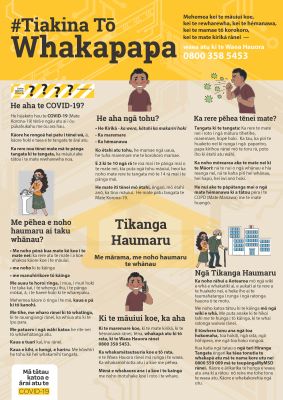
- Hauora tangata | Personal wellbeing
- Te ritenga ā whānau | Whānau plan
- Te Takatū tikanga | Adapting our tikanga
- and more
Te Arahi Maipi (Mahi Tahi Media) fronts this Whaanau Guide to COVID-19 daily Q&A Facebook Live show. All sorts of experts are interviewed. Whānau can also post questions.
Te Ao Māori News is profiling the response from iwi to whānau across the motu everyday. This is from Atiawa Toa FM who are part of Te Rūnanganui o Te Te Āti Awa ki te Upoko o te Ika a Maui.
Te Ao with Moana is a current affairs programme on Māori TV. Moana Maniapoto's conversations in Series 2 Episode 9 (6 April 2020) with whānau across the globe bring home the experience of whānau with the COVID-19 threat. Tune in weekly on Mondays at 8pm or watch on demand.
Here's some information about the Kōhanga National Trust advice to kōhanga to stay closed under Alert Level 3.
He Maimai Aroha: We farewell Atareta Poananga (Ngāti Porou, Rangitane), an advocate for Māori rights, who passed away 29 April 2020. We remember her staunch role as a voice for social justice and her drive for constitutional transformation to change these injustices for Māori. Moe mai ra e te mareikura!
We must not forget the Anzac commemorations. There are two surviving members of the 28th Māori Battalion, Robert Gillies and Epineha Ratapu. Despite mass gathering being cancelled this Anzac Day due to COVID-19 restrictions, Matt Te Pou says there are a lot of ways that people will be able to honour the Anzacs. Some ways could include singing waiata, doing karakia, and doing a speech to remember our own tīpuna, he says (22 April 2020).
The Hotere whānau grieved the loss of their Papa and Koro early in the lockdown. This story from Tapatahi (Māori TV) gives them some time to reflect and share this experience, including a waiata for healing.
Ngahuia Te Awekotuku has written Thoughts on dealing with tangihanga during Coronavirus?
Pou Āwhina
Ngā pārongo manaaki me ngā ratonga tautoko
Information on support and services available
People are feeling anxious as cases of COVID-19 rise but alongside this sits concern as to how people are going to financially survive another lockdown. Unite against COVID-19 has put together a helpful resource on where to go for financial support.
Support continues for whānau in Rangitīkei, Ruapēhu, Whanganui and South Taranaki regions. Te Ranga Tupua collective, comprised of iwi Chairs from the Rangitīkei, Ruapēhu, Whanganui and South Taranaki regions, will ensure that communities continue to receive support through an 0800 number. 0800 202 004 is available from Monday-Friday, 8am to 5pm. After hours, whānau and community members can leave a message which will then be responded to in working hours.
Rise2025 founder Rachel Petero talks with Tapere Hewett (financial advisor) about the importance of acknowledging the changes that may be impacting on whānau around income, work, paying the bills and keeping your whānau well. Tapere talks about managing our finances including where and how to seek advice and help from financial sources
Stan Walker and Jordan Rivers kōrero about lockdown and its effect on mental wellbeing. They speak about understanding the whakapapa of what they were feeling, ending the cycle and the importance of talking and having the tools to process emotions safely.
Time to think, when our taonga respond, there is a reason! “My biggest learning is that COVID is not new to us! The lockdown reminded me of Parihaka….it felt familiar and we have been here before!” Whaea Lynda Toki is a Kaiawhina at Te Whare Wānanga ō Wairaka in Tāmaki Makaurau. Her reflections are initially about her wrestle with technology as a Nanny, in order to continue to support tauira and staff through the COVID-19 restrictions. She then shares her experience around what these particular conditions raised for her as she observed the environment and attended to the different reactions of people who called upon her for counsel. Whaea Lynda shares her reflections.
When was the last time you felt proud? The Aotearoa Humanity Project has been about capturing the stories of everyday people willing to share their lives, and the things they are proud of. This is Carmen’s story.
For whānau curious about how this lockdown has impacted on the community and whānau, tune in to this discussion led by Prime Minister Jacinda Ardern who interviews Professor Tahu Kukutai and Professor Tracey McIntosh. Both have extensive experience working with Māori and Pacific communities in Aotearoa.
Check-Up with Dr Lily Fraser is presented by Manatu Hauora and Te Taura Whiri I te Reo. This kōrero on Facebook is specifically for rangatahi.
Noho Taiao: Te Rarawa Anga Mua: This story is about getting taitamariki involved with their local whenua and teaching them how to be kaitiaki. Learn to work with the land – touch it, feel it, smell it! Tiakina te taiao, tiakina te iwi!
Darrin Haimona of Ngāti Hauā shares some thoughts in Kōrero in a Bubble on the E Tū Whānau Facebook page. Darrin also talks to whānau about keeping safe and reaching out for help when you need to. Produced by E Tū Whānau. E Tū Whānau have regular updates of positive whānau stories on their website and Facebook page.
Rongoā Māori put to use at mainstream hospital: Rongoā Māori is slowly being recognised alongside conventional medicinal options for healing. The recent unveiling ceremony for a rongoā Māori garden outside the Ko Awatea building at Middlemore hospital is a story that illustrates some acknowledgement of the traditional practice and the healing properties that Rongoā Māori provides.
Rongoā Māori is using our ngāhere and resources local to us for remedies, healing and medicinal care. Donna Kerridge is interviewed by Rachael Petero #Real Talk.
Should tamariki be going back to kura and what can we do to ensure their safety? Atareta & Te Haakura are back for a kōrero with Dr Lily on keeping school safe for our kids. If your tamariki are feeling unwell, play it safe and keep them home from school or early childhood education. If they have cold or flu like symptoms call your doctor or Healthline - 0800 358 5453 and make sure they get tested.
You can never spoil a baby! Deb Rewiri is a Parent Educator with SKIP sharing some wise words around embracing babies (awhiawhi pēpi) in difficult times.
A bit of a waiata with Rawiri Waititi and his kōtiro putiputi: Listen in to this sweet song between father and daughter.
Using Māori Lullabies to Raise our Tamariki: Waka Huia looks at ancient stories of traditional lullabies and their important teachings for raising children. Māori oriori | Lullabies Part 1 and Part 2
Maringirangi Pohatu reminds us all of the karakia-a-ringa Ko te Pū. Great to do with tamariki at the beginning and end of each day!
Do you know where you stand on your marae? Where do you best serve your whānau, your hapū or your iwi? Buck Korewha (nō Omanaia) has a series of kōrero on Facebook for whānau navigating tikanga Māori. This is a reminder of the different domains of responsibility active on the marae and intended to assist whānau to find your place to contribute (manaaki tangata). Buck also reiterates that this is Buck’s version, and that your own whaea, Aunties, marae, whānau, kaumātua, and hapū will always have their own relevant versions to help inform you. Mauri ora!
New Wahine Toa book: World champion rugby player Stacey Fluhler (nee Waaka) is now the subject of a new book. The book is part of a seven-part series that profiles Māori and Pasifika women who have overcome challenges in their lives. The book was written by David Riley, a local author and kaiako at Tangaroa College. Stacey talks to Te Ao Maori News about the book.
He Koha Mīti: Te Karere covers this story of manaakitanga from the Ministry of Primary Industries (MPI) who has gifted pork meat packs to whānau, to be distributed through Ngāti Porou Hauora to East Coast communities.
Thank you: The Whānau Ora Community Clinic in Manukau extends their thanks to their frontline workers.
GP Dr Sarah Sciascia reminds us about good health habits - because you never know.
Toi Ora – Protect our Whakapapa present this collection of artists who share their journeys: Toi Ora, an expression of wellbeing through a creative lens, is a collection of stories from Māori and Pasifika artists who have experienced depression and anxiety.
Indigenous 100 revisit interview with Lisa Tamati: During recent times, many of our whānau have faced uncertainty and there's still a long road ahead for some. Resilience, courage and perseverance are mental tools needed now more than ever. Lisa speaks about her challenges as an endurance athlete to push the limits of human endurance. Mātakitaki mai!
Te Oranga Pūmanawa helps rangatahi move past trauma and pain: Hawke’s Bay youth wanting to turn their lives around for the better have embraced a new programme with old Māori cleansing elements.
Online resource provides help with mental health struggles as COVID-19 impacts felt: Te Ao Maori News profiles Jase Te Patu who is about helping people align Mind, Body and Soul as a way of supporting those struggling. “If those who are looking for help watch these videos, you may find ways to help you cope or how you can deal with what you are going through." Watch 25 Kiwis helping Kiwis - Mental Health awareness - Part 1 and Part 2.
Karakia o te Ata: Protect our Whakapapa televises this recording of Che Wilson delivering ‘karakia o te ata’ from a livestream. The Karakia starts at 4.33 mins on the recording.
What were some of the opportunities that presented for you during the lockdown? Rachel Petero (Waikato/Tainui) hosted her own talkback series during lockdown with Rise 2020, interviewing people of interest throughout the motu. We asked her to share how she seized the moment to ramp up the kōrero among her networks and whānau whānui.
Tokona te Raki – Māori Futures Collective: Māori are over-represented in industries vulnerable to economic shocks and under-represented in future growth sectors. Ka whati te tai: A generation disrupted focuses on the economic impacts of COVID-19 on Māori. The report explores both challenges and opportunities for Māori in the new work order.
Go Māori ! Michelle Paki is the founder of ‘Buy Māori Made’, talking with Jordan and Logan Bell from Katchafire. They revisit the COVID experience for the Bell brothers and talk about the impacts on the music industry and their efforts to balance whānau, business and global reggae superstardom!
Whiria te Muka - Far North Iwi team up with Police to fight family violence. Ngai Takoto, Ngāti Kuri, Te Aupourui, & Te Rarawa are activating a Social & Wellbeing accord as a new response to violence in the family. Te Rūnanga o Te Rarawa chair Haami Piripi says this new approach was created because the old ways weren't working. “We’re intent on [eradicating] violence from our homes," The idea, Piripi says, is to create mana-enhancing services that will help perpetrators to stop inflicting violence on their loved ones.
Moerangi Falaoa brings some positive reflections to whānau from the E Tū Whānau page.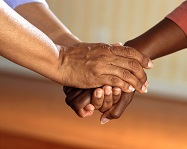
See more videos from E Tū Whānau.
0800 Hey Bro is a 24/7 support line for tāne needing someone to talk to.
Insights from Francis & Kaiora Tipene: This E-Tangata article provides extracts from Life as a Casketeer (written by Francis and Kaiora Tipene, and published by Harper Collins New Zealand). Francis Tipene talks about being raised by his grandparents in the Far North, and how he became the country’s most famous funeral director.
Marae apply tangihanga rules despite being ‘rerekē rawa.’ Whanau who have lost loved ones over the COVID-19 Alert levels will experience the poroporoaki in a very different way. Level 2 relaxed some of the restrictions and this story profiles how Orakei Marae have had to conduct tangi.
Te Rūnanga o Ngāti Ranginui Iwi interview Grace Edwards (embalmer) who talks about her role to support the whānau pani to navigate the tangihanga process. As a Māori woman she brings an āhua and inherent understanding of how to work with whānau inclusively during tangihanga. She focuses on breaking down the barriers for whānau and helping them look after their loved one who has passed away. Under the guidance of the COVID Tangihanga Protocols communicated by the Ministry of Health, Grace has needed to work with the guidelines and at the same time, be flexible to provide whānau time to grieve.
How did the COVID-19 experience impact you? Rachel Petero (Waikato/Tainui) hosted her own talkback series during lockdown, interviewing people of interest throughout the motu. Rachel shares her own experience of this time.
We need each other! Together as a whānau and community we were able to get through this thing and have happier times! Brent Mio (Ngāti Awa, Ngai Tai ki Torere, Tūhoe) is based in Te Teko and shares his experience over the COVID-19 levels and his observations of whakawhanaungatanga and manaaki tangata kicking in for whānau in these extraordinary times.
Whānau Ora service providers – “The biggest mobilisation across the country ... proactive and responsive!” Shane White (Ngāti Raukawa, Ngāti Ranginui, Ngāti Tara Tāwhaki) manages Hoani Waititi Marae in West Auckland. In this kōrero he acknowledges the services and people who kicked into manaakitanga mode in Waitākere communities and across the motu.
Rangatahi seeking re-connection – it's important! Manager of Hoani Waititi Marae, Shane White reflects on his movements over lockdown and observations about rangatahi at this time. He expresses his consciousness in making sure he was following safe protocols driven by the thought, “some things you should take no risk with, children is one of them ... their health and their wellbeing.”
Nature is key to NZ's post-COVID future: Tāmati Kruger speaks to Rod Oram about Tūhoe's response to Covid-19 in the Te Urewera mountains, and how the iwi is looking to a much stronger New Zealand society that's aware of its obligations to be a far wiser caretaker of our natural resources.
Wikitoria Tuhakaraina Simon has taken the opportunity over the lockdown to promote the time honoured tradition of poi making, and it has taken off with whānau. She believes in poi as a healing artform. Go to her Facebook group Mauri o te Poi to learn poi making with traditional and contemporary materials. Mauriora whānau!
Justin Gush from Te Hauora Tangata Health and Fitness talks about Aka, a waiora programme that he has lived by and practiced for many years. He shares the relevance for individuals to be looking to self-help ways of our tupuna as he has done in times like now.
All sorts of challenges will have ramped up over the lockdown period and unfortunately some our tamariki tend to be on the receiving end of this. This story is from Te Ao Māori News. It is a prompt to parents experiencing any sense of pressure to reach out to the support services in your community, to seek help from other whānau, talk to someone and tiaki tamariki I ngā wā katoa, I ngā wāhi katoa….ahakoa te aha!
Pēpi Penapena - Cherish Babies presenter Elizabeth Harte (Ngāpuhi, Ngāti Porou) talks about our oral histories passed down through generations that teach about love, relationships and parenting. This video shares the pūrākau of the separation of Rangi and Papa.
Māori Community Recovery: Challenges and Opportunities - COVID-19 Perspectives. This is a webinar hosted by Community Research with Dr Regan Potangaroa, Adrian Te Patu, and Maire Kipa who discuss the challenges and opportunities for Māori recovery from the COVID-19 situation, based on learning that occurred from Ōtautahi and other indigenous disaster experiences
Kia kaha tātou mā. Joe Waru (Ngāpuhi Nui Tonu) shares some of this thoughts and experiences through COVID-19. Joe works for an essential service in Tāmaki Makaurau and in this first clip, he shares a bit about his experience in lockdown. In this second clip, he talks about some of the positive things he’s experienced about people’s attitude and behaviour in this time. In this clip, Joe gives rangatahi some things to think about to cope with some of the changes. Finally, he shares a kōrero for other Pāpā out there grappling with the restrictions of Level 3. He invites others to post their own thoughts, encouraging each other to keep the kōrero going with tāne, to tāne, by tāne.
Wiremu Niania (cultural therapy) shares his interpretation of Te Whare Tapa Whā (Durie, 1986) to help whānau to have an awareness of these four dimensions of well-being that may help us all manage ourselves and our tamariki.
Free firewood delivered to over 100 Hauraki homes - Te Ao News reports: Ngāti Tara Tokanui Trust teamed up with DoC and several local forestry contractors to get this surplus wood to over 100 homes, free of charge. The manaakitanga continues!
Piripi Morunga of Te Piha Romiromi updates us on his experience with the lockdown. He also takes us to some of the tools our tupuna taught us about to keep well ā wairua, ā tinana, ā hinengaro, ā wairua. Tune in to this wānanga waiora with Piripi. Earlier, Piripi reflected on Facebook on some of the learning we could be gaining from this time in ‘lockdown.'
Whakamoemiti: MFM Te Reo o Te Iwi provide karakia each day – this is one for everyday whānau!
E Tu Whānau have regular updates of positive whānau stories on their website and Facebook page. Awa Transmedia Studio have produced this clip with kōrero contributions about Aroha. Mātakitaki mai.
Here’s a voice from our rangatahi. Shaneece Brunning, Rangatahi Kahukura, Taupō has a kōrero about lockdown on the E Tū Whānau Facebook page.
Community Research have a made a video with Sharon Armstrong called Staying safe and well in isolation based on her experience of spending 2 ½ years in an Argentinian prison.
This is a story from Te Karere by Hania Douglas, Maintaining social connection important for whānau wellbeing. It includes some great tips from Whaea Moe Milne and Dr Hinemoa Elder.
In this time of forced increased digital communication, the article Māori millennials are showing the way by Wiremu Manaia acknowledges the reality that our tamariki are going to be leading the way with their parents and grandparents when it comes to online connectivity.
In acknowledgement of the recent passing of Huirangi Eruera Waikerepuru of Taranaki, champion and change-maker for the promotion of Te Reo Maori across all platforms in education and the media, we share this karakia ‘E tau nei’ written by him and performed by Hinemoa Peke-Manawaiti (Ngāti Hauā, Ngāti Tamaterā).
| E tau nei ki runga i a tātou katoa Te wairua o ngā mātua tūpuna Nā rātou i whakatakoto, te ara Hei hīkoinga mā tātou ngā uri, ngā uri I whakatōngia o rātou ngākau ki ngā tikanga hei aratakinga i ā tātou Kia ngākau nui, ki te hāpai i a rātou mahi katoa I roto i te pono, i te tika, I māramatanga Me te aroha anō, ō tētahi ki tētahi Koia rā e Rongo whakairia ki runga Kia tīna Tīna! Hui e ! Tāiki e ! |
May the spirit of our ancestors be upon us Those that laid the path which we The succeeding generations now traverse May our hearts and minds hold steadfastly To the ways of being and knowing of our old people May we be guided by these ways in all we say May truth, rightfulness, understanding and love for All people be the axis of our lives At this time, let compatibility, Tranquillity and resolution be our guiding forces. |
Pou Manaaki
Ngā hinonga whakapiki ora
Activities to keep well and safe
Hereturikōkā | August is the third month of the Māori year and historically a great time for planting. Utilising the Maramataka, we can see that on the 21st, 22nd and 23rd of this month the moon’s cycle is in Tāne Mahuta and so a great time to plant your maara kai. Stuff interviews Ngāti Porou gardener Adrian Sutherland about Maara kai. Discover One Minute Gardening with Adrian Sutherland on Facebook. Watch Building a Karikore Maara Kai (no dig vegetable garden) at Pupuaruhe Marae in Whakatane.
Māori Movement’s Ngarino Tauwhirowhiro Te Waati (Beez) shares another manifestation of his mahi with Tāne Matua, the rising sons of Tāne, a wānanga retreat for tāne who are preparing to change for whānau, for human equity, for self worth and prosperity. Hear more from Beez with a mini Skindigenous documentary as he shares more of his kōrero and what inspires him.
A new astronomy wānanga (school of learning) will hand down ancient knowledge of the stars. The new whare wānanga, named Te Whare Tātai Arorangi, will come under the maru of Iramoko marae. Ngāti Awa Pouroto Ngaropo will be running the wānanga. Wānanga co-founder Piripi Lambert says the stars played an important role in all ancient wānanga. “To understand the ancient whare wānanga and its teachings, you have to understand the stars,” Lambert says. The ancient role of tohunga kōkōrangi (astronomers) in the old times was to observe the stars and make predictions. Leaders would base their decisions on these predictions for the good of their people.
Te Karere profiles Papatūānuku Kōkiri Marae feeding the community with their fresh produce. They are also encouraging whānau to learn how to grow their own kai to ensure food security for their whānau all year round and for any unforeseen circumstances like what we are experiencing now with COVID-19.
For the first time in history, more than 50% of our kaumatua and kuia have been immunised against influenza. Te Ao Māori News reports that the free influenza vaccine is part of a $9.5 million Māori specific influenza vaccination campaign. Within our own knowledge is Rongoā which can also support our vulnerable whānau. Plants such as kawakawa, karamu and kumarahou are Papatūānuku’s gift to our people feeling the effects of the colder months.
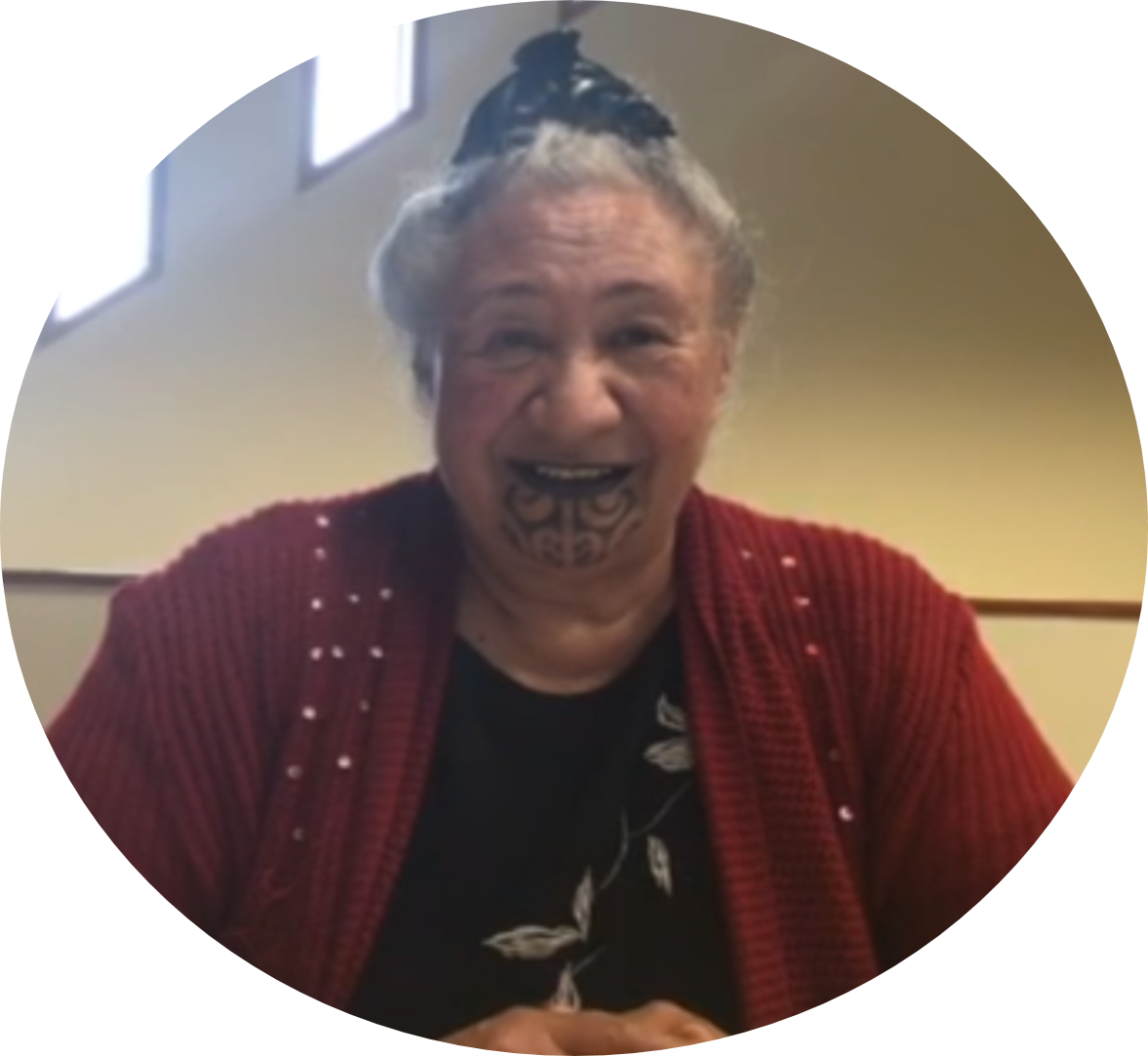 We need to hear, and respond – COVID-19 has been an opportunity for ourselves and the Taiao to heal: Whaea Lynda Toki (Ngati Maniapoto) reflects on what we can be doing and thinking about in preparation for looking after our future environment – using what we already know and drawing on our karakia, karanga and wānanga to keep ourselves in check and our responsibilities to Papatūānuku to the fore.
We need to hear, and respond – COVID-19 has been an opportunity for ourselves and the Taiao to heal: Whaea Lynda Toki (Ngati Maniapoto) reflects on what we can be doing and thinking about in preparation for looking after our future environment – using what we already know and drawing on our karakia, karanga and wānanga to keep ourselves in check and our responsibilities to Papatūānuku to the fore.
Kaupapa Māori Rites of Passage: Tiaki Coates and Kirialana Wilson host this kōrero with Kōka Raina Ferris sharing the reclamation of traditional rites of passage practices for tamariki mokopuna.
Titiro whakamuri, haere whakamua: Looking to the past to inform the future. How aroha, rongoā and manaaki tangata continues to lead the way for social equality. This is a Toi Ako webinar produced by Toi Tangata. Davina Thompson (Ngāti Awa, Te Arawa) is an elite sportswoman, a Māmā, a kaimahi for Te Arawa Lakes trust and a Rongoā Māori practitioner. She has pursued mātauranga Māori for many years, passed on to her from her kuia and koroua.
Why getting to oranga starts with you! This is a short film produced by Kiri Tamihere-Waititi illustrating just one of her wānanga that she often has with her tamariki on life’s lessons. In this case the message is that your wellbeing/success/happiness is your responsibility ... nobody else’s. Kool whānau vid with a great message.
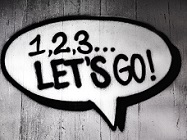 Join Liz Harte in a series of short videos which share what parenting looked liked for our tūpuna (from pre-colonial times).
Join Liz Harte in a series of short videos which share what parenting looked liked for our tūpuna (from pre-colonial times).
Kauae Ki Runga: Unlikely Futures is hosted by Awerangi who is talking to Oriini Kaipara and Maria-Pare Te Whiu. They share their stories of growing up in the West, careers and whānau. Their whakaaro on wearing moko kauae and what it means to them is the kaupapa of this kōrero.
Aro ki te ha ō ngā tāngata! There is more help than there ever has been at this time: Rachel Petero encourages whānau to focus on what you have ... not what you don’t have, and reach out for what you need from those around you in your hapū and local community.
Filmmaker urges whānau to document their own stories: This story is from Tapatahi. Multi-award winning filmmaker Hiona Henare is encouraging Māori families and tamariki to create their own films to keep stories within their iwi alive. “Māori are natural storytellers. We all have phones. We all have cameras. Our tamariki have their iPads and their chrome books. They’ve all got cameras on them. So there’s an opportunity there for our whānau, for our tamariki to be out there recording stories, doing an interview with kuia, kaumātua, taking it to the marae.”
When was the last time you felt proud? Lance from Whangārei in Northland is part of the Aotearoa Humanity Project. His message for whānau "Treat one another with kindness. It’s the best medicine. Absolutely. Kindness isn’t the new cool. It’s always been cool."
He Whakatau Mauri – Practices to manage stress and anxiety: This kōrero is from Te Kōkōmuka (Indigenous 100). Rawiri Gloyne along with Pania Papa, Che Wilson and Rangi Matamua discuss this kaupapa in te reo Māori and English.
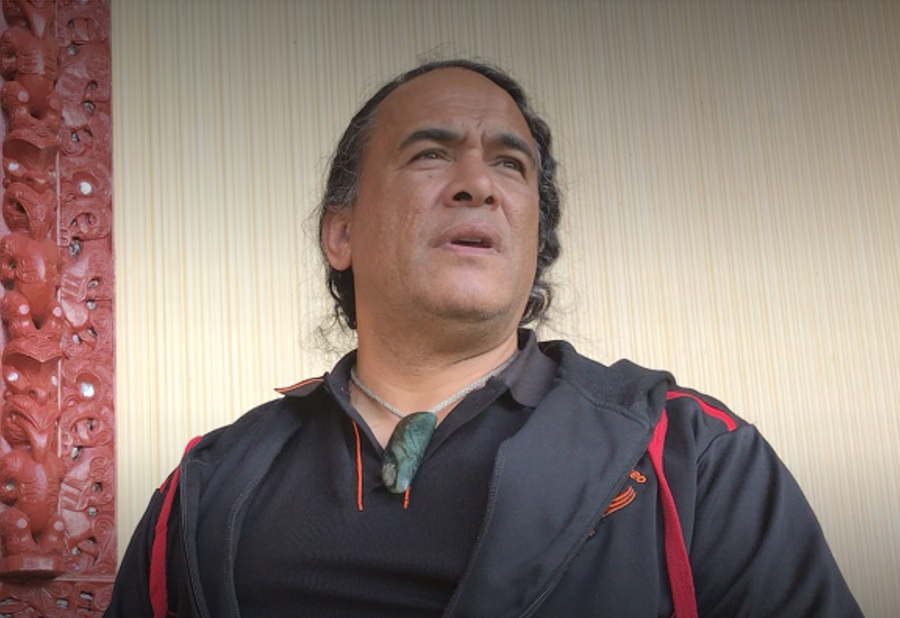 If your mind is clear and your spirit is willing, you can do anything cuzzy! Shane White (Ngāti Raukawa, Ngāti Ranginui, Ngāti Tara Tāwhaki) reflects on his ‘lockdown experience’ running around delivering kai packs and looking out for kaumātua. He speaks to some of the pressures that many whānau may have faced in this time. He also talks about some of the good things that have come out of the COVID restrictions, and is encouraging about resetting as a whānau to brave the future.
If your mind is clear and your spirit is willing, you can do anything cuzzy! Shane White (Ngāti Raukawa, Ngāti Ranginui, Ngāti Tara Tāwhaki) reflects on his ‘lockdown experience’ running around delivering kai packs and looking out for kaumātua. He speaks to some of the pressures that many whānau may have faced in this time. He also talks about some of the good things that have come out of the COVID restrictions, and is encouraging about resetting as a whānau to brave the future.
Dr Pikihuia Pomare’s Facebook page is named Te Rau Ora. She and her boys speak to a whakatauki (proverb) and encourage whānau to remain focused on nurturing and growing our tamariki especially at this time.
It is the beginning of a new year with the rising of Matariki, and with it comes the opportunity to reflect on what has been, what we are holding onto and what we are letting go of as we move forward into the future. Finding Matariki is now easier with a collaboration between Spark's KUPU app and Dr Rangi Matamua. Additionally we have some downloadable resources for our tamariki courtesy of Te Wānanga o Aotearoa.
200 care packs made a week to get iwi back on feet: Ngāti Wai spokesperson Aperahama Edwards wants iwi to get back on their feet.
Matariki celebration to ignite as Māori New Year nears: Ngatapa Black says COVID-19 creates a new perspective as this country enters the Māori New Year. For those who have lost loved ones over this time, Matariki provide a relevant time and space for whānau across the motu to acknowledge their passing and celebrate their lives collectively.
Awakening the taniwha: Unleashing community potential from the rubble of COVID-19 (The Spinoff, 9 June 2020): COVID-19 has reset our understanding of the world. From this crisis comes opportunity, and University of Otago professor Merata Kawharu (Ngāti Whātua, Ngāpuhi) believes it’s a chance to apply traditional principles to our new normal.
"Understanding the importance of my environment helped me grow. I hope this helps someone else ..." Protect our Whakapapa contributor Harmonious Rā shares some knowledge about the importance of being conscious about the environment that we surround ourselves and our children in. Sometimes we get so used to a bad environment that it begins to be normal and we just accept it for what it is. The best place to be is surrounded by positivity and tolerance.
Saving Taewa Māori: We catch up with Kiritahi Firmin again who encourages whanau to keep their seed banks topped up. She provides some advice around storing taewa seed and looking after this hua whenua until planting in the season at the end of the year.
Applying Atua Matua while in isolation. Toi Tangata facilitate this webinar hosted by Atua Matua expert Dr Ihirangi Heke. Toi Ako webinar series features a Mātauranga Māori approach to physical activity while living in isolation.
Kua Hikina te Manuka #HakaAgainstViolence #SheIsNotYourRehab is a haka challenge that has gone out on Facebook encouraging whānau to learn and perform as part of a collective tautoko across the motu against violence. Check out this whānau from Tamaki Makaurau who give it a go!
Hautapu-Feeding Matariki: Living by the Stars is hosted by Professor Rangi Matamua and keeps us all informed about the stages in the Maramatanga leading in to Matariki. This session talks about the ceremony of feeding Matariki (Hautapu)
The whenua is us and we are the whenua! This fun clip is produced by Māori Stuff’s Cool, the message conveyed is that Māori are super protective of the whenua (land). And this is why!
Stuart Lawrence, chair of Māori Pasifika Trades Training explains the impact of getting Māori into the trades. He Poutama Rangatahi was piloted in the provinces to get at-risk taiohi Māori into employment. The new Budget allocation means that He Poutama Rangatahi will be extended to operate in urban centres. “This opens up a lot of opportunities to all ages. Not just our young … everybody has the opportunity to take up a trade. At whatever age. We have the young and the more mature all working together around that space”. Watch this news from Tapatahi to find out more!
Jay Hepi – Making a positive difference on the Kaikohe landscape: He was the president of the Tribesman Motorcycle Club in Auckland, a professional fighter and a rugby league star but Jay Hepi left life with the patch to head to his home town, Kaikohe. For some time now Hepi has been using his experiences to help steer those needing support onto a better path.
Helping communities recover from the effects of COVID-19 (Te Ao News): Mātātoa is a multi-sports and health organisation with bi-lingual kaimahi who deliver kaupapa Māori hākinakina (sports) and pūtaiao (science) programmes in 27 Tāmaki Makaurau schools – kura kaupapa and schools with a reo Māori unit. During the COVID-19 restrictions, Mātātoa partnered with Māori-based superfood company Kaitahi Limited to deliver healthy kai packages to vulnerable whānau in Tāmaki Makaurau. Frank Haimona and his team found that their diversifying into other manaaki roles was also a way of keeping in touch with the tamariki they already knew from the kura. Frank says he and the team could provide a safety net for those who needed it.
Te Karere profiled this whānau in Tāmaki Makaurau looking at ways to keeping the tamariki active by drawing on our pūrākau and using things you have around you to create play in the lockdown and involve the whole whānau.
ProCare have created this resource to help Māori & Pasifika fanau with questions about your health and how to access the service support you need during COVID-19.
Māori businesses are being promoted by Buy Māori Made, a new social media platform promoting and helping small Māori businesses get on their feet following the lockdown. Check it out whānau, some very creative Māori out there.
Piripi Morunga - Whaiwhakaaro: Piripi Morunga of Te Piha Romiromi brings us the latest of his reflections about returning to some sort of norm.
Kai parcels for families affected by job losses: Over 200 households across the Whangārei region will be receiving the food parcels, expanding from those elderly and struggling whānau, to those impacted by job losses. Donations of kai have come from AFFCO, Talley's and New World to the Whangārei region.
Waahi Pā delivers smiles to Huntly community. Another story of manaakitanga, this time from the Waikato.
Kim Erikson Downs from E Tu Whānau gives some messages for whānau from lockdown and still relevant today!
Here is a bit of a pep talk from Kiingi Tuheitia Pootatau Te Wherowhero Vll to whānau o te motu.
Taku Inoi is a waiata from Maisey’s album Tira, reminding us to keep aroha to the fore and continue to respect and seek guidance from those forces greater than ourselves.
The Sidney-Richmond whānau from Palmerston North is hosting morning workouts via Zoom to stay connected to whānau around Aotearoa and the world.
Usshh is an innovative sports app that provides a platform for athletes to showcase their talent and ability. Founder Maxie Kemara (Whānau-a-Apanui) soft-launched the app in February and already has over 800 users. You might have some talent in your tamariki that Usshh can showcase.
Hikitia te Hā! Keeping active at all ages is one of the challenges for whānau limited to the whare or the section surrounding the whare. This is Hā Tai Chi suited to our pakeke or those with the achy joints to try out. Kia tau!
Here’s a story from Te Ao Māori News about Waitaha Iwi and the kind of activities they have been promoting with whānau. This page of Te Ao Māori News has numerous stories from across the country every day.
Ayla Hoeta has written this article for the Spinoff Learning to live by the maramataka: Paengawhāwhā with mātauranga guidance from Matua Percy Tipene and Matua Rereata Makiha. This is an encouraging article for whānau to think about attending to your maara kai in the last days of April.
The Kura mō Ngā Mokopuna Facebook page is for whānau who have tamariki in bilingual or rumaki reo, Kura Kaupapa Māori. It provides activities, games, waiata, resources and learning i roto i te reo rangatira. Tune in and join this education website.
On Māori TV, Jay & Sarah share tips on how they create more kotahitanga with their whānau in their whare during the isolation period by running whānau hui. They practice tikanga Māori, karakia, mihi and waiata. They do goal setting and gratitude with their tamariki as well.
Matua Mohi is sharing some kēmu Māori or games for playing with tamariki at home to have a big of fun.
All you kohānga whānau, here are some more games from He Pī Ka Rere and the Penetito-Hemara whānau in Tāmaki Makaurau.
Click here to return to the three pou



